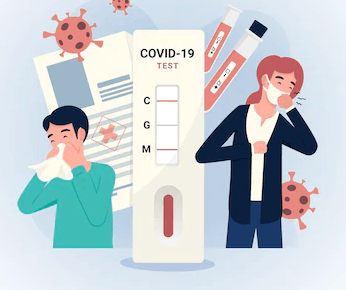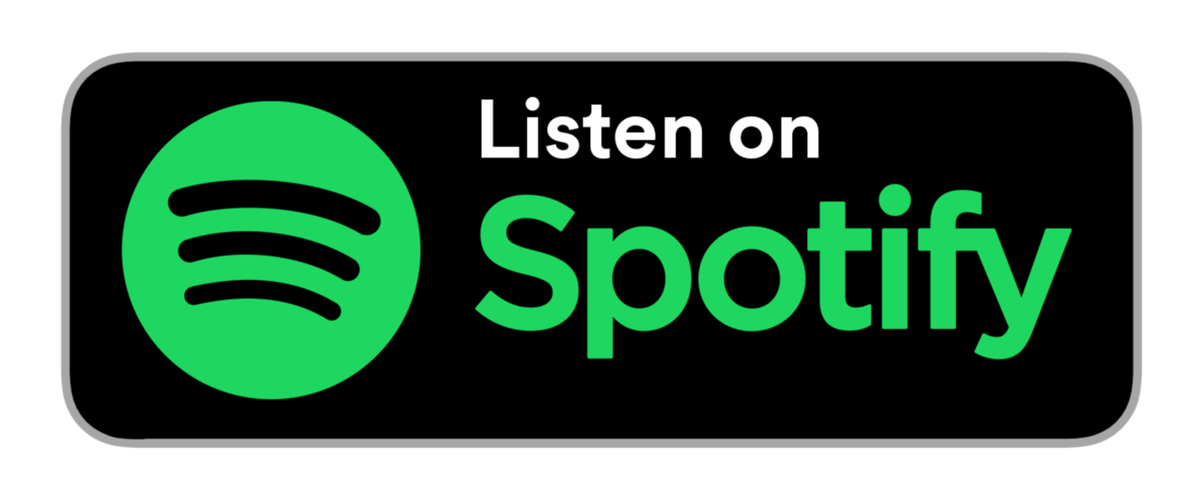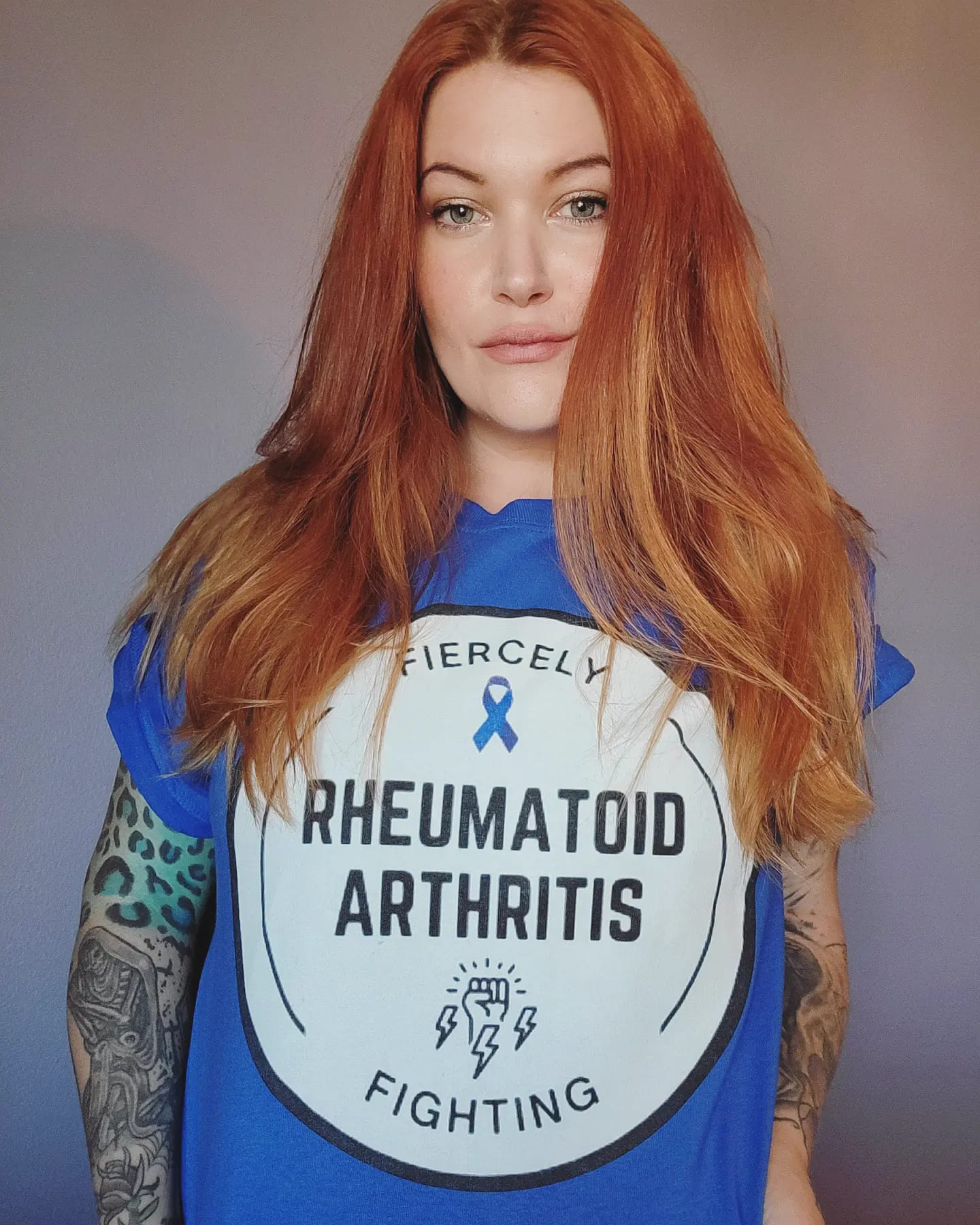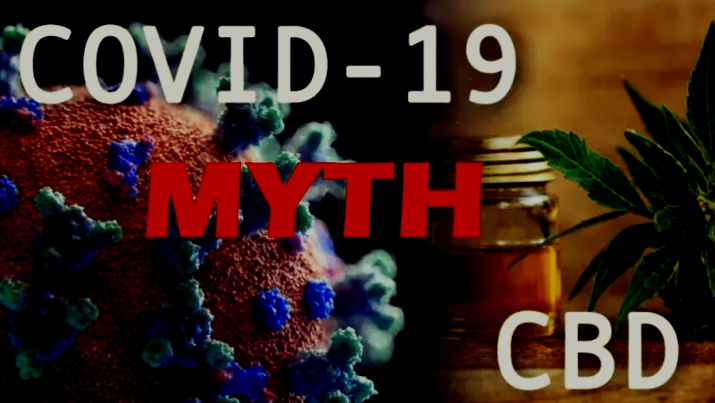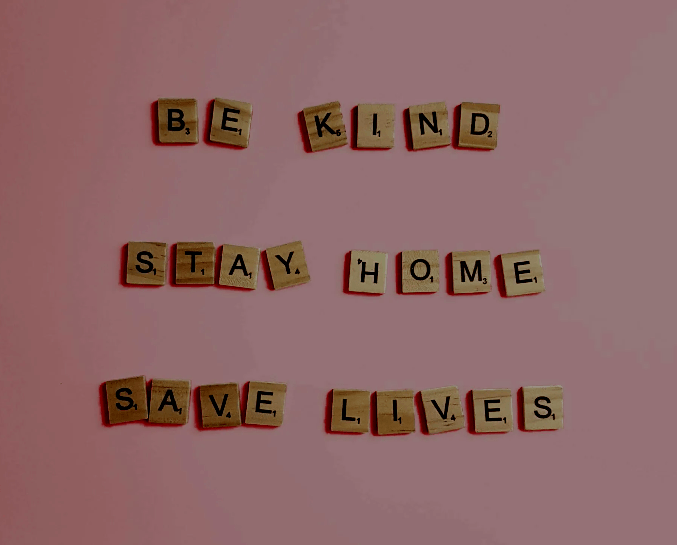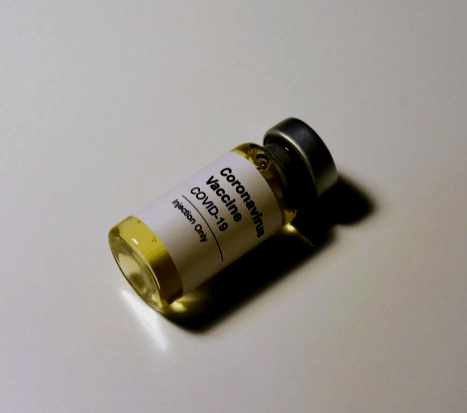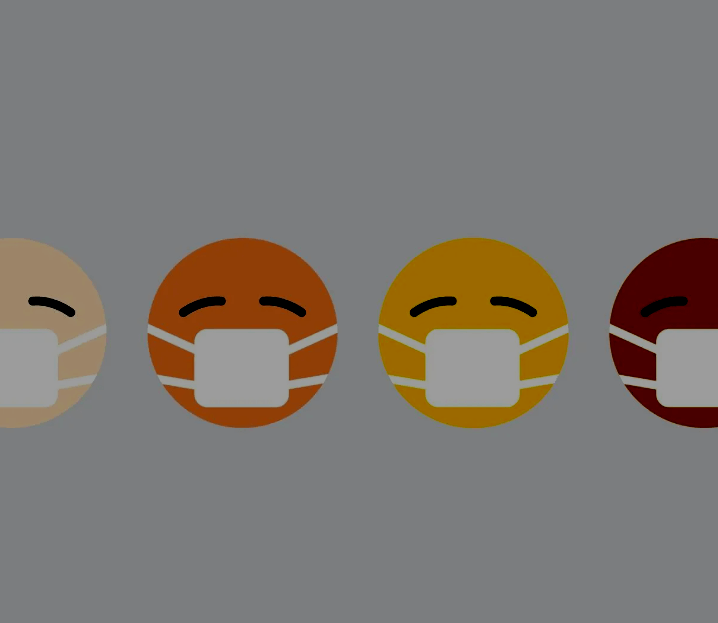COVID in 2022 - Evolving Concerns, Questions, and Opinions
AiArthritis Voices 360 Main, Full Episode 76
Air Date: Aug 7, 2022
This episode is a Step 5 - a revisit to the table - as outlined in our 6 Step Patient-Led Problem Solving Process.
Over the last couple of years, the world has watched as COVID-19 has evolved into variants that differ slightly from the original virus. We’ve seen vaccinations and boosters work, yet we also know that new strains are somewhat resistant to high-level protection. COVID treatments have emerged to help those who are immunocompromised - like those with AiArthritis diseases who are on immunosuppressive treatments - but can we access them and, if so, how?
We've been on quite an emotional and physical rollercoaster, and it’s not over. Should we be concerned about “Long COVID” and “Post COVID”? What is research showing about COVID in our rheumatology population? Join Tiffany, Patrice, and Deb - all persons living with
AiArthritis diseases and who also all have experienced COVID recently - as they share the latest research, guidance, and their own personal patient-guided opinions - in regards to the world of COVID in 2022.
LISTEN TO THE FULL EPISODE THEN BE SURE TO TAKE A SEAT AT THE TABLE BY JOINING THE CONVERSATION!
(Scroll down the page to learn how!)

All our main 1st Sunday of the month episodes are either an initial "put the topic on the table" episode (Step 2 in our organization's 6-step problem solving process) or a "revisit to the table" episode, where we build on a past show because we have moved forward in developing help, tools, or projects around the issue (Step 5 in our organization's 6-step process).
After each show airs we spin off the conversation into many discussions over various formats, which we now call #360its (new in 2022)!
Episode Highlights :
- What are Long COVID and Post COVID and how can either affect someone with AiArthritis diseases?
- The key factors that increase risk of getting COVID
- Evolution of COVID and the relevance of current COVID research
- The first steps to take if you are someone with AiArthritis disease and diagnosed with COVID
- How to access medication to prevent COVID for those who are immunocompromised
- The impact self care and your mental health can have on developing post-COVID
Be sure to check out our top-rated show on
Feedspot!
-
Transcript (click on the arrow to see the transcript with timestamps)
Transcription Episode 76
COVID in 2022 - Evolving Concerns, Questions, and Opinions
Episode 76
[00:00:00] Welcome to AiArthritis, voices, 360, the podcast solving today's most pressing issues in the AiArthritis community. We invite you all to the table where together we face the daily challenges of autoimmune and autoinflammatory arthritis. Join our fellow patient cohosts as they lead discussions in the patient community, as well as consult with stakeholders worldwide, to solve the problems that matter most, whether you are a loved one, a professional working in the field, or a person diagnosed with an AiArthritis disease.
This podcast is for you. So pull up a chair and take a seat at the table.
[00:00:53] Tiffany: Hello and welcome to AR arthritis, voices 360. This is the official talk show for the international foundation for [00:01:00] autoimmune and autoinflammatory arthritis, or just say AiArthritis for short. My name is Tiffany Westridge Robertson. I'm the CEO of the organization, and I am also a person living with AI arthritis, disease, myself.
I have non-radiographic axial spondyloarthritis or you can just say a spa. And there are also a few other, on my chart. You'll see Bette's disease and then a little bit of everything else, but those are, those are the two main ones that you'll see if you look at my official chart and I am not alone. No, I'm not at the table.
I have two other fellow peers, fellow regular co-hosts with me. I have miss Patrice and Eileen. Hey there. Hey Tiffany. Hey, why don't we start with Patrice? Why don't you tell everybody a little bit about yourself?
[00:01:47] Patrice: So I am a volunteer with a AiArthritis and I co-hosted and hosted several talk shows and a 360 at recently.
And 11 years ago, I was diagnosed [00:02:00] with RA, uh, specifically polymyaglia rheumatica, and then two rheumatologists later that told me I did not have that. So I was kind of categorized in the Ferd diagnosis. And then my current rheumatologist said, no, I do indeed have PMR.
[00:02:18] Tiffany: There you go. And, and I said, acts by, you said PMR.
I was kind of giggling a little when you said the whole name out. Cause I was like, why can't our diseases have. Easier names
[00:02:29] Patrice: aren't they all in Latin or something? I dunno.
[00:02:32] Tiffany: Well, Eileen's is easier to say, so, Hey Eileen.
[00:02:36] Eileen: Hi everyone. My name is Eileen Davidson and I live with rheumatoid arthritis. I am a kind of new volunteer with AR arthritis, but I am not new to volunteering in the arthritis community.
I am a member of the arthritis research, Canada, patient advisory board, a writer for creaky joints as well as many other organizations. So it's a pleasure to be here. And I'm also from Vancouver, BC, [00:03:00] Canada.
[00:03:01] Tiffany: Right. So we've got Canada in the house and Patrice and I are both from the United States. And you might also know I Eileen as chronic Eileen, who is, I think how I got to know you in the first place.
[00:03:14] Eileen: yeah. Most people know me as chronic Eileen.
[00:03:16] Tiffany: following you on social media. So today we are going to do a revisit to the table. And for those of you who are familiar with the show, we have, our show is literally. Of what we do at the organization. As far as our programs, we're always about patient-inspired identifying problems because we have lived experience.
And then we work together as people living with the diseases to try to solve problems by creating resources and being mentors and helping you to be connected with great education. And those are good solutions because they're patient infused and pun intended patient infused. So, uh, so in [00:04:00] saying that it's a very specific six-step process that we do this, and the first step is listening to people, living with our diseases and we start to rant or talk or communicate, and we realize, wow, this has to.
Something we talk about and what we have to provide educational resources for really has to get involved in these conversations. And then in step two, we kind of put that topic on the table and then we bring more people in step three, we start to analyze in four and then in five, which this is, we come back to the topic.
We've either evolved in the topic. We might have new resources and that topic is COVID. So , it's been going on now for a while, gonna timestamp this. We are in the August, 2022, and it's been an experience for the whole world, but a lot in the rheumatology community. And we're gonna focus a little bit on history of where we've been, where we are today.
We're gonna talk a little bit. [00:05:00] Our personal concerns and concerns of the community. We're gonna share a little bit of research and some education with everyone, so that hopefully that this brings a good, healthy conversation and knowledge in where we are in the COVID pandemic today. I'm gonna throw it over to Eileen here and just, we're kind of winging it right now.
That's how we roll sometimes. Eileen, why don't you just tell us a little bit just personal experience with COVID, where your thoughts are right now? Anything that you wanna just throw on the table as we talk about this today?
[00:05:35] Eileen: Uh, well, I just have to say that's a very loaded. Question as COVID experience has been a whirlwind, um, especially as, uh, you know, a patient with inflammatory arthritis, because it does make me immunocompromised and also my medications, the whole experience has been a bunch of ups and downs.
Particularly at first it was very scary and stressful and right before. [00:06:00] Pandemic. I was actually extremely close to remission and I think one of the most difficult things that I've gone through the whole pandemic is how I've fallen off of my healthcare routine that I was doing before. And I feel far less motivated to do things.
Also having covid I've noticed that it, it had an impact, even though I'm now negative with testing, and it's been a while, it's still taking me a while to get back to where I was before that. So in my mind, I'm yearning for pre COVID times because I was feeling physically a lot better than
[00:06:36] Tiffany: that is a great transition to something Patrice wanted to talk about because Patrice, you recently had covid and you were sharing with me and I will add on to that on just how this sort of post COVID or long COVID and kind of where we are now with that. So, Patrice, why don't you kind of chime in and tell a little bit about [00:07:00] your story with COVID and your concerns that you wanted to bring to the table today?
[00:07:05] Patrice: Sure. I was diagnosed six weeks ago and at first I did not think I had COVID. So for two days I had a sore throat, very sore throat and an earache, and I have ear infections. I'm prone to them all year long. So that's what I thought it was. And then developed a slight cough. I had no fever. I felt pretty good.
And then two days later I tested positive and I did one of the home PCR tests. And within. It didn't even wait the 15 minutes within two minutes, it turned positive and I thought this is crazy. So by then it was like eight or nine o'clock at night. And of course medical officers are closed and it's a Saturday.
So the next day I did go to urgent care and I did test positive the first two weeks, I guess I still had the sore throat, the ear infection, apparently according to the urgent care [00:08:00] doctor, she said that it was a secondary infection. I'm not so sure, but she's the medical expert. So I'll go with what she says, but, you know, I was taking three naps a day.
I'm down to one now. So I guess that means I'm improving. Uh, but I still have, the cough has gone away, but I still have a clogged deer. As bad as it was. And I still have a lot of, and I know this is kind of gross mucus in my throat. I just cannot seem to get rid of that. But that's my journey so far. And we were talking about long haul, I guess six weeks post COVID is not considered long haul, but I've been reading a lot about people who are long haul patients.
This is posed six months. A year, some very severe, some just mild as what I am experiencing right now. And the funny thing is, is that I was on, uh, the online, I don't watch a lot of news on TV to read it online. So I was on the [00:09:00] online, uh, channel that I, uh, watch periodically. And there was this article about these two marathon runners.
They were in extreme health, young, no diseases, and are now experiencing long haul COVID. So they do not have any rheumatic diseases or autoinflammatory diseases. And yet here they are six months to a year out, still having problems.
[00:09:26] Tiffany: Yeah, that's something that we definitely wanted to bring up today. So we're talking about what is long COVID and we wanna to bring up some research that is talking about how our community in particular is equally affected as other people with.
And we wanted to address that as well, because as we were talking about before we started today, all three of. Myself, Eileen and Patrice have been attending the LAR, which is the [00:10:00] European Alliance of associations for rheumatology and the American college of rheumatology conferences every year, since COVID and wow.
Things have things have evolved. And we started with all of this mass research and uncertainty, and now there's actually some good data that we wanted to share with you that was just presented and talked about at the most recent rheumatology conference here at LAR in June of 2022. Now, as far as my experience goes, well, I had COVDI the first time in March of 2020.
And that was back when there were no tests where there, I mean, it was very chaotic. And even though I can't say that I had a positive test for sure. My rheumatologist, my doctor, everybody. 99.9% certain that that's what it was. And now that I've had it twice, I have no doubt because I felt the same, but just on on a lower, on a lower scale, but the first [00:11:00] time, the other thing, it was very strange because after about two and a half weeks, I started having what felt like, like the, the really bad heart problems.
I kept going to the ER, felt like I was having a heart attack, whole side of my left arm, but my EKG was normal. And so they diagnosed it with per carditis and it was a whole six months of this. And so I had this long term effect of it. And then finally, after about six months, everything subsided and never again and never before that had I had any.
With my heart. And then this last time was about a month and a half ago when I was infected again. And I'm fully vaccinated and fully boosted. I can say that I'm thankful for that because it was very much noticeable. It was less. I felt it less. So it felt exactly the same with that sort of dry cough and the sore throat and the fatigue.
And I had night sweats and I [00:12:00] even started feeling a little bit of like heart palpitations. But if so, it was basically everything I had the first time, but on a much lower scale that to me, I felt very happy and confident. And, uh, in the decisions that I made personally to have the vaccinations and, and the impact, and the other thing, what we wanted to just bring up when we're talking about the vaccinations and the boosters, which is caused some confusion with people is the reason that we were, we meaning people with our diseases who take treatments that cause our immune systems to become compromised because we have overactive immune systems, our medications make us immunocompromised and especially some of those treats.
In particular like steroids or methotrexate mildly or, uh, Rituxin certain biologics. They were showing that the vaccinations were [00:13:00] not as effective. Uh, it's our medications that were making the vaccinations, not as effective in our population is maybe some others. And so that is why we, it was recommended take boosters.
It wasn't to give more, it was to give equal to equal protection. So if you think the average person's going to have antibodies, and they're going to have a response to the vaccine because of the medications that we were on, many people were just not achieving as much response. And that is why for the boosters.
So I'm gonna stop here and I'm going to sort of open the conversation here to start on some of the things we wanted to make sure that everybody. Was informed about. So I thought it would be a good idea to just start with some of the research. And I don't know, Eileen, if you wanted to mention any of it, I know that you attended and reviewed some of the same sessions I [00:14:00] did at LAR.
[00:14:00] Eileen: Yeah. I've actually, I've had the pleasure of attending not only the American and European rheumatology conferences, but also the Canadian rheumatology conferences all while the COVID pandemic has happened. It was actually, I was away at the Canadian rheumatology conference, right. When it was starting to be like, oh, COVID was just kind of getting talked about to now we know so much more, there have been certain trends I've noticed with what the rheumatologist vaccine experts and all those kinds of people have been saying during these six or so conferences that I've gone to.
And it's. Number one rule is we are all at risk for COVID potentially it being somehow fatal or long COVID. However, there is a demographic of people who seem to be a bit more at risk, um, males who are overweight, who smoke and have comorbidities along with their inflammatory arthritis. So [00:15:00] it's a good thing that we have the vaccines and everything.
Now, however, it is still very, very serious illness and that we need to take it serious and not just brush off the pandemic or the risk of our infections.
[00:15:12] Tiffany: I'm pulling up here, a couple of the reports and the research that we wanted to just make sure that people with our diseases were aware of, because there's been so much up and down, are we affected more?
Are we in more risk? And what the research has been really showing is that people with immune or inflammatory diseases like our diseases, they might have a higher risk for infection, but that additional risk is probably small. I'm reading this specifically from a conclusion on different studies that I'm referencing, that were presented in abstract form.
And I'm looking at the authors and Hey, there's Al Kim. My [00:16:00] rheumatologist. And one of the people that you have heard on this show, possibly he is an author and it's called COVID 19 in people with rheumatic diseases, risks, outcomes, treatments, and considerations. It also talks about outcomes. And I think it's a happy surprise that we are learning.
The people living with our diseases are not necessarily more at risk for having more severe outcomes, as much as the comorbidities associated, meaning age, or if we have heart disease or existing health issues that are equal to the same things we're seeing for the general patient population. Right. So did either one of you wanna expand on.
[00:16:47] Patrice: Yeah. So for a while, and I think Tiffany, you and I discussed this in a couple of text messages. I was just in my own mind, I there's no scientific evidence to back this up. I thought that [00:17:00] maybe us patients dealing with our diseases were at more risk as compared to people that did not have our diseases.
I thought maybe more we were, I don't wanna say a target, but. More of us would come down with this disease. And it's funny. Um, Eileen had mentioned people seem to have let their guard down. I think, especially I think within the last year, cause you know, here we are in 2020, all of us were watching the news.
I think I could safely say that. Probably even most of the people listening to this every night we were watching the news on TV. It was a very, very scary situation to here we are. Two years later, I was in a state where the mask mandates, uh, went in effect shortly after, say around, I think it was around may of 2020.
And then of course, everything shut down in my state. I at the time was living in California, which is a huge state, lots and lots of people to here we are [00:18:00] in 2022. I live in a smaller state now. And it's funny because when I'm out and about doing my errands, I am still wearing a mask. Although I did get COVID, but that was, I believe from a coworker who infected me.
Um, but that's another story. So I am still wearing a mask. I probably will for some time until the disease is eradicated, but who knows when that's gonna be.
[00:18:26] Eileen: It's interesting that you bring up the smaller state. There's less people where you are now wearing masks. I noticed that here in Canada, too, I'm in a bigger city and there's very common to see masks, but whenever I take a trip to the countryside or something, it's a lot less, they're a lot more compliant about wearing them.
[00:18:44] Tiffany: So yes, I, the, the whole question right now about mask, what to wear them, what not to wear when to wear it's, it's really, turning into some kind of a personalized choice, really, depending on who you are and your personal navigation [00:19:00] through this whole continued pandemic. But I wanted to just take a moment to better explain long haul COVID because there's so many terms now there's long haul COVID there's post COVID.
There's acute COVID 19 there. Oh my gosh. There's so many different terms coming up here again. So you probably at some point have heard of long COVID and that is when a person has the infection. They are seemingly resolved from the infection. They're no longer positive, but there's continued symptoms that last a very long time and almost like complications.
So for me, it was when I had it in March of 2020, it was a continuation in my heart. And it was just the most bizarre thing it lasted for about six months. And at the time nobody could figure it out because what was bizarre is my EKGs. My tests of the heart specifically were showing no abnormalities yet here.
I [00:20:00] was literally having every symptom of a heart attack. You can even think of my whole left arm was just tight pressure, tightness, really tightness in my chest and my left shoulder blade. I felt like I had pneumonia. And it was a constant and it would, it would flare up and, and nobody could explain what was happening to me because they weren't showing up on the test.
And I've never really, to this day, been able to explain that. And then I started seeing some research that's coming out and there was a one specifically that I was looking at what they were calling acute COVID 19 syndrome, where different patients, they were talking specifically about the heart, that there is a certain abnormality and elevated heart rates, and they have several symptoms that are happening, but there might not be any presence in this acute syndrome that's happening.
So the EKGs, [00:21:00] the, or electrocardiograms and testing of the heart and monitoring coming up, showing nothing. So that made me feel a little bit justified, but a scary situation, all it in itself. So it's just one of those things we want everyone to be conscious about of these sort of long term COVID. But on a positive note, I also wanted just mention a study that was in one of the American college of rheumatology in 2021, there was a study on risk factors for long haulers in COVID 19 and rheumatology outpatients.
This was specifically in New York. The purpose of the study was really to understand the persistent symptoms of COVID 19. If you have our diseases and you know, the study was done. Back in early 2021. So we have to date this. We're, we're presenting this now in, you know, a year and a half later, basically.
So it just shows the, the progression. There was [00:22:00] such a concern about, oh my gosh, what's gonna happen to our patients. But what the conclusion was was, you know, over half of the rheumatology patients that had COVID did report persistent symptoms for over three months considered then long haulers. But the patients who were most likely to have these long haul symptoms had medical comorbidities, they had a smoking history, they were on steroid use.
And that's something that we've mentioned time and time again, that we recognize there are worse outcomes when people are on specific diseases. Again, this is good news in the sense that the risk factor not showing up higher in our diseases. And then lastly, I just wanna throw a couple recommendations that have come out from this research as well.
There's antiviral medications. Now we're talking a little bit more about this in a minute, and they are recommended by the American college of rheumatology [00:23:00] by the agencies in, in other parts of the world who govern rheumatology that. Persons with our diseases who do have positive test results, should talk to the rheumatologists who then together can decide it's possible.
You might stop taking your medications and consider starting a treatment with these antiviral medications, which are showing good promise and ensuring that the COVID does not result in hospitalization or death. And I think which we all know already, but it's good to reiterate that it has been from the beginning, recommended that our community do get vaccinated, including your boosters.
Even despite some evidence that some of the later boosters might not be producing as much efficacy, but any efficacy is better than no efficacy at all. Just to kind of close off here, the research portion of [00:24:00] this, what the takeaway is. For people living with the diseases is really just to understand that COVID is a serious disease.
Regardless if you have a rheumatic condition or not your risk factor, whether you have a rheumatic disease or not is higher. If you smoke, if you have comorbidities, if you have existing conditions like, you know, a heart disease or diabetes or something of that nature. So we're not saying this to say, Hey, great, put your guard down, which is what you all just mentioned.
We're saying it because it is important to know that you have relatively equal risk to others. And because you have these diseases, research is showing that it may not be a higher risk factor. [00:25:00] Although the treatments that we're on can cause less efficacy in the vaccinations. And that is where more of a concern lies.
And that's why partially why we also see a big movement towards getting patients off of steroids. There's a lot of studies in that we have talked about in some of our go with us to research conferences, debriefs, there's a big push on getting patients off of. Now, there are bad for you anyway, but , some of it has to do with COVID as well.
That was triggered with COVID. So I wanted to, and we can circle back cuz there's several different studies that were brought up. If anything else as we go through is relevant here, but the mask. and boy, we've had talk about a journey with COVID. I mean, remember in the beginning it was, do you wear a mask?
Do you not wear a mask cloth masks don't work. Ha no one has N N 95. I mean, it is, we have, we have [00:26:00] had a mask journey, uh, whirl. I mean, it has been, and you still, it's a, it's a debate in any room you go in, there will be somebody with a different perspective or opinion about it, but it's come back sort to the forefront and a conversation that I had with my dad about a few weeks ago that my dad he's gone this whole time.
Not had COVID. Finally it happened, right. It seems like everybody's starting to get it. And he called me cuz he was very confused. And so again, we're dating ourselves. This is airing August, 2022. And this was in June, late June of 2022. And he said, I know I've talked to the doctors, I've talked to, you know, the hotline I've but I know you're also in very, in the know of this and I'd like to know your opinion.
He said, I, I had it now like the CDC, the [00:27:00] recommendations say, if you're vaccinated, you are in quarantine for five days. And then once you're done with the five days, you can go out, but you should mask so that you can protect people. And he of course was still taking his COVID test. because he had places to go and wanted to see if he was still positive and it was coming up positive for, I don't know, the total amount of days, I wanna say maybe more like 10 days.
And so I explained to him from the data that I have seen, and again, I'm prefacing this by saying, I am not , you know, a researcher or a doctor or a, or a pandemic expert. I'm going with the information that we have in our database. And just from being part of conferences and listening to these conversations.
And from what I understand, the virus itself can live inside of your body and not be as. [00:28:00] Contagious after a certain amount of time, we also have to keep in mind the different strains. So what are we even on now? B BA five or B? I don't even, I, I can't even keep track to be honest. And every time you turn around before it was Omicron, Omicron was the big one and January, February of 2022.
And now you don't see much of that. It's just, it keeps evolving. Right. And we have to remember that the tests that we're taking were designed for 2020 COVID. And so it only makes sense that there's going to be a little, I don't know, wonkiness, isn't the greatest scientific term , but I mean, wonkiness on how our current strands are affecting the diseases and where my dad was concerned.
And I, and I wanted to bring this up because I be honestly was, am concerned about it too. Having these recommendations that are so blanket that are so. [00:29:00] Generalized. We don't know a lot about the variance. And when I did a little bit more digging, I saw an article that was posted on the today show in early June.
I believe it was and was citing that research is showing that C is not as transmittable after a certain amount of time. People will show potential positive tests up to approximately 10 days or more, but we shouldn't so much worry about it was sort of the bottom line. So I went and I started clicking on those links to that research that was being cited.
And it was research that was in January on Omicron predominantly. And it just made me start asking questions. And I'm not putting this out here to provoke any fear or uncertainty. I'm putting it out there as. An example of research keeps evolving and this pandemic keeps evolving. [00:30:00] And what we believed a year ago is changed because we keep getting more information.
And one of the things that we learned in LAR 2020 and then ACR again in 2020, is this is the first time that in our recent history, that research is going so fast. It's like, it's, it's the, because we need the data. And so this research that was published from January of 2022, that's being cited for how we're reacting to tests and the guidance for how long to stay inside.
I just, I'm gonna be honest for me. It's sort of a question mark. So when my dad said, do you think I should go out knowing I'm positive? And knowing I still have a cough and I still have a sniffle and everything. I told him it's, everybody's best judgment at this point. And I think that's the, the takeaway I'm trying to get to.
There's always gonna be evolving data. The [00:31:00] information that we're using for guidance now is based on research that was done six months ago. And I think we have to all take that with a grain of salt and use our best personal judgment on this. If you're not comfortable, don't go out. If you, you know, and, and the same thing about this guidance, and I don't know if everybody here knows it or not, but the guidance says you don't even need to test yourself when you're done with five days.
Just go. I thought that was strange. And my niece, who is a nurse's assistant at a hospital when she had COVID, my dad then asked her, well, what did you do? Did you go back to work? Did you test? And she said, no, I didn't test. He said, well, what if you're positive? She said I probably was, but the idea being you don't have as much virus, so you're not contagious.
So I just personally wonder how do we know really? that cuz we keep [00:32:00] everybody's getting it now. Like I don't know. And maybe I, I don't even know. Should I have even brought that up?
[00:32:05] Eileen: I think it's interesting. You actually did bring it up because it was end of may when I got COVID. So actually really not that long ago now I'm thinking of it two months ago.
What I did right away was email my rheumatologist for advice because I didn't wanna go through all the rabbit holes of trying to find what I needed to do on the internet. Uh, I always go to my head honcho with my rheumatologist and she suggested I actually stay home and don't go out for 10 days. I was luckily enough.
Able to get ahold of the antivirals from her very, very fast, which reduced my sickness duration for quite bit. But I did rebound for about two days after antivirals. I tested negative after like about 11 days. However, I'm also on one of the biologics that they are using in hospitals to treat [00:33:00] COVID and I'm feel sort of blessed to be on that one biologic because there are other ones that could have made it worse outcomes for me, where this one actually made it a better outcome for me.
[00:33:13] Patrice: I stayed home for the five days. And on day six, I took another PCR and it was negative. I waited a couple more days after that and thought, well, I'm just wanna make sure just for my own peace of mind and it was negative again. Now, the funny thing is, is that after I, the very first time, when I tested positive, my husband developed this huge barking cough, and he took a PCR test right after I did, it was negative.
He waited a day, he took another PCR test and it was negative. And then he went to urgent care and they too told him it was negative, but yet he had this cough that would not go away. And then several days after that, he took a test and it was one of those that [00:34:00] it wasn't totally positive, but it wasn't totally negative kind of that in between.
So, and he just stayed home for five days. And again, this is all just.
[00:34:09] Tiffany: Us talking as people, as humans, having opinions and perspectives. And I just have to wonder about, as we keep growing these strains and moving farther away from what the original COVID was and the strains that it was, how effective these testings are.
Cuz we did, um, I went to a conference and we got back and out of four of us, all four got very sick. Two of us tested positive for COVID and the other two to many tests and kept coming up negative, but have admitted. It's the worst quote unquote cold they've ever had and still coughing. So I don't know, it, it it's just there's a lot.
And I bringing it up again just to remind people the pandemic's not. Yes, that's really, the point is [00:35:00] there's a lot of strange things happening still. And I don't think we're gonna have the answers right now because the research that's being cited and recommendations today has to take time to go through research and research takes time.
And that's why the research and the data is based on Omicron and not the current strain. And then the research now, when we have a different strain, in six months will be based on what we're experiencing right now. So the takeaway is I think the conversation should always still be out there, keep it real, keep it relevant, make your best judgements.
And remember that this is evolving. And what we, we do know is that the research that has has been following our patients is definitely showing that our outcomes are not any worse. Than others who have different comorbidities. So that is a very clean, great takeaway because I do also [00:36:00] know that there have been many patients who have hovered inside of their houses for the last couple of years, very fearful to leave.
And again, personal choice, whatever your comfort level is, yours, take the research, take the knowledge that we're giving. Um, in saying that what else has evolved since we've been going through this pandemic and going through this research and going through this experience is patience is how do we treat it?
So as you just mentioned, Eileen and I believe, and well, I don't know if Patrice, you were prescribed it as well.
[00:36:35] Patrice: I was, however it was on the weekend. That was day. Monday morning was day six. My understanding that, uh, I missed the deadline that, and I had to clear it with my rheumatologist because one of my medications Contra, it can't even say it interferes.
[00:36:55] Tiffany: There you go. It wasn't good. Um, [00:37:00] so, um, I did not take it, but I am reading where some people have taken the, and then felt worse. And I, I have no research to back that up. That's just reading things online. It was very experience being on the antiviral. They give you a very taste um, and they also, they gave me some diarrhea, some little bit tummy, a little bit of nausea yeah, there and again, this is a great example of things are.
And we just have to do what we think is best. Right? And so when I got the positive test, shout out to Al Dr. Kim, who I mentioned before, that is my actual rheumatologist and I have him on a messaging speed dial almost. So I feel very fortunate within five minutes, he was messaged me back and had the order at the pharmacy.
And I know that that is not the norm. And I understand that. Um, [00:38:00] so I'm very blessed and feel very fortunate for that relationship that I have and saying that it was funny because that night, you know, I took it or whatever. And then that the next day I woke up in the middle of the night, Eileen and I went, what is this taste in my mouth?
It was like eating metal or so it was the weirdest taste. And I could, oh, it was kind of like if an aspirin or a pill dissolved in your mouth, and in your throat, and if it was just stuck there, that was terrible. And it didn't go away. What it reminded me of was like an even more intense after taste that some sleeping pills give you, oh, it was bad.
It was like that, but 30 times worse it was like it, and it didn't go away. It was a constant and it almost made me stop taking them because it was so strong.
[00:38:57] Eileen: Did you chew gum?
[00:38:59] Tiffany: I had [00:39:00] tic tacks. I probably should have tried gum.
[00:39:02] Eileen: Okay. Gum I found was the only thing that helped me and then really strong dark coffee.
[00:39:08] Tiffany: Hmm. Well, that's interesting. Yeah. So there you go. There's a tip for everybody. If you are on this it was, it was bad, but I did feel considerably better within 24 hours. That was definitely a plus, but let's address that Patrice. So there is something called PS LOD rebound. This is a phenomenon that's been reported from our president in the United States, president Biden, even Dr.
Fauci himself had reported something along this line. So it's not necessarily that it's not working it's that it's not necessarily keeping the COVID away, but it's postponing it . So in these situations while they recovered from COVID almost immediately after started testing [00:40:00] positive again. So the question has sort of come up well, you know, what, what is, what do I do?
Should I wear a mask again? Should I quarantine again and well kind of a, a theme today is. It's going to sort of depend on your personal thoughts. I there's a quote here that I, I see from an article posted just recently here, again, dating this at August of 2022, where they say, even with so many unknowns, there is encouragement with the PLO in that people are not getting particularly too sick and they're not ending up in the hospital.
So if the goal of this treatment is to prevent hospitalization and deaths, it is doing incredibly well in saying that we don't know if. The person is still contagious if they get it back. And I, I just can't stress enough that we're gonna have to use a lot of our own personal considerations and protections on this because the [00:41:00] guidance that's out, it's not accommodating for all of these factors.
And if we don't have the research to show, okay, this person, after they take the antiviral, they get it again. Are they contagious? We don't know. So I just strongly encourage you if you're taking these antivirals and you do have a situation where it comes back and you test positive again, just like I said, I, I'm not the, the governing agency on recommendations, but I think that advice is used your best sense and don't infect anyone unknowingly.
Well, now there's also treatments and these are for. Preventing COVID this came out in December of 2021, and we have all tried to decide how to say the word. Um, so EBU shed is where we came up with. I'm probably butchering it, but [00:42:00] this is a treatment that is currently. Only available to people who are immunocompromised.
So that is either you have a condition that makes you immunocompromised or the treatments you are on make you immunocompromised. At first, I know when this came out, a lot of people in our community were trying to gain access and like anything, when it first comes out, you have limited supply and it has to be rationed.
Same thing we saw with the testing save. It's like everything, right? Everything has the vaccines everything's rationed at first. So most of them, unless you lived in a rural area were going mostly to people with cancer, and then it trickled down to our diseases. And from what I understand, it's much more available now.
So that is also something that you might wanna talk to your rheumatologist about. Al told me to contact him back in a few weeks after I got over COVID and we [00:43:00] could talk about. Getting me on that. That is also something I just wanted to bring up because there are now other ways of dealing with COVID
[00:43:10] Eileen: that's um, I haven't seen that discussed in Canada yet, so I'm learning the states is usually ahead of us.
[00:43:17] Tiffany: So, so this new treatment. Well, okay. It's in the United States. What about elsewhere? And it only launched or came to fruition six months ago. And so it's only been available in the United States. Very limited for the LA since like January-ish. And I think people with our diseases started getting more access to it, maybe two or three months ago.
So I know you saw something in Canada specifically.
[00:43:50] Eileen: Yeah, it was released in April. So we're about I guess, four or five months behind the states at the moment.
[00:43:58] Tiffany: And it does also [00:44:00] appear that as of March of 2022, it was recommended by the European medicines agency as well. So this is something relatively new and it looks like it is a form of an injection.
300 milligrams, but the point being that it's something that is potentially a conversation that you may wanna have with your doctor. And I know, uh, I always said chronic. I look, I did that before. She's, we're looking at each other on zoom and we have our names and I just glanced down. It says chronic Eileen.
And I started calling her chronic
So Eileen, you had made a really good point when we were TA talking about this as well, in regards to it's indicated for people who are immunocompromised, because they have a condition that makes them that way or the treatments, but also. [00:45:00] For people not able to be vaccinated.
[00:45:03] Eileen: Yeah. They who cannot have the vaccine.
So maybe they might be allergic to the vaccine or those who do not Mount an adequate immune response to the COVID 19 vaccination. So that's when we come into people who are renal compromised
[00:45:17] Tiffany: 100%. And we just mentioned a little while ago. We do know there are specific treatments of ours that impact the efficacy of the vaccination.
So this is also why this particular treatment of preventing potentially preventing COVID would. Be offered to people living with our diseases because of that. But they do specifically say it is not a substitute for vaccination. Okay. So as we sort of wrap up this conversation about where we are right now with C and the continued concerns that you all our community may [00:46:00] have and what we can do as an organization to help you navigate some of the continued questions we wanted to kind of close this off by referencing another wasn't really a study.
It was a debate . So at these conferences, what often will happen is they'll assign rheumatoid rheumatologists aside and they'll say, okay, Debate on a very hot topic. And the hot topic at the LAR 2022 debate in June was will COVID 19 have a long term impact on the rheumatology practice. Now, granted that's rheumatologists going back and forth and arguing about the, the practice itself, but we are impacted by the practice.
And we thought that this would be a good opportunity to just talk about some of the lasting impacts. You know, we've all been through this now. We're still going through this. Patrice talked in the beginning about having some weird ongoing [00:47:00] symptoms. This last time I also had, what I found out was called post COVID it's different than long COVID didn't even know that was a thing.
And it said that basically there is a segment of people who are just having expanded symptoms. But it's different than the long COVID, which really develops into something a lot more serious. Like for me, I had long COVID the first time my heart was impacted for six months. But after this last time I couldn't stop coughing.
I was completely negative and it lasted for like three weeks. And it seems like this is a new phenomenon. That's different in these strains than in the past. So again, something different, something to just think about. And especially, I think people with our diseases, if you've got any particle left of the virus, whether it's, you know, if it's not necessarily contagious, it's just [00:48:00] something to think about.
Take better care of yourself. Think about, you know, self care, because there's still something lingering, whether you're testing positive or negative, but that's a thing post COVID. Do you know that mm-hmm no Uhuh,
[00:48:15] Eileen: I could see it. I know that RA patients sometimes have a chronic cough, especially depending on the medications that we're on.
So I could see that kind of irritating that chronic cough that we get.
[00:48:26] Tiffany: That's a good point. So, yeah. So I just thought that I would bring that up as well as a point of just again, the pandemic isn't over, it's evolving and there are things that are different now than there are before. And it's going to continue to change as the new strains evolve as well.
Right. That's what evolution is, it starts to morph and things change and, and things alter. So we're going to go back here to this debate and the lasting impact on patients. [00:49:00] One of the things that they both could agree. Was that patients have experienced problems missing their treatments, missing their appointments.
Have you Patrice, have you Eileen missed any of your appointments and things like that throughout COVID I see Eileen's shaking her head. Yes, no. Uhuh,
[00:49:23] Eileen: my mistreatments were at the beginning of the pandemic. So right before the pandemic, I was really close to remission, but then something kind of changed whether it was the stress and the fear and everything that the pandemic caused in me, or maybe it was because I, my gym was closed or maybe it was the copper deficiency that I developed.
And also maybe it was when I had to pause my treatment. So I go in and get monthly infusions. Most of the rheumatologists at my infusion clinic ended up at COVID. So they had to close down the clinic and they didn't wanna bring in some [00:50:00] patients to get their infusions. So I went from infusion once a month to home injections and because my drug is a bit different and it's like weaker in the self injection form, that could have been a reason why I flared as well.
But yeah, it was really, really a big nuisance because I was definitely doing a lot better pre COVID
[00:50:27] Tiffany: yeah, for me, I remember while I didn't miss any, I went to virtual. I realized since you don't leave the office and go to the front desk to book the other appoint. That I didn't have a follow up appointment.
Like there, there was just like weird things like that. Yeah. Where I went, oh my gosh. You know what? I don't know when I go back to the rheumatologist. So I think that was on both sides. Like the rheumatology offices. Weren't thinking that either right at first.
[00:50:55] Eileen: Yeah, that happened to me. And that also happened with referrals too, because I [00:51:00] was doing a virtual or phone appointment with my rheumatologist and I said, I needed physio, but I also had a bunch of other needs.
Somehow. It just got missed sending that referral in. And so I ended up having to wait extra long for my physio referral, which was tragic in my mind.
[00:51:17] Tiffany: And you said Eileen, that you felt like you were almost in remission before COVID and so has. at all resurfaced or where are you now? Or where have you been in the last two years?
[00:51:30] Eileen: Well, it was actually my rheumatologist who's told me I was close to remission before the pandemic happened and I wish I was back on track, but I've been really struggling ever since the pandemic to get back on track is completely like zapped my motivation. And I'm also a lot less social. I don't like going out so much because particularly, you know, in Canada we have the freedom convoys.
People are very vocal about, you know, [00:52:00] trash talking and trash people who get vaccinated, who take the restriction serious. So it's been a little bit uncomfortable. So I think maybe not. The fact that it's impacted by motivation, but it's impacted by mental health. So I'm, I have anxiety I have, or more anxiety.
I have more depression. I have more concerns about going out. So I've just kind of become a homebody and a introvert. And then like some of my bad habits have definitely skyrocketed since the pandemic. So yeah, I just, I'm really hoping to get out of this too. Well,
[00:52:32] Tiffany: well, part of it, I, I think is even just being able to talk and to people like this, right.
I mean, and having relationships and all of that, because there is a big mental component. There's always been an issue in our diseases where you've got the psychological, you have the social. One of the studies that we have pulled up here that, uh, was referenced in the conferences was long COVID and post COVID.[00:53:00]
and it is associated with poor mental health in patients with rheumatic disease. And this was results from a study that lasted for over a year. And it essentially highlighted, I'm reading this now that highlighted that in R D patients and that RD standing for rheumatic diseases. Those at risk of developing post COVID syndrome were more likely females.
And those with worse pre pandemic health, while physical health remained stable, following the infection, the mental health of patients that developed post COVID syndrome was significantly worse than those that suffered COVID acute. So here we go with this, this again, where I mentioned acute earlier, having these instant disease flare ups, like mine happened with the heart where we're talking about most post COVID is more longevity.
These are things that are lasting for a longer duration of time. And I just think that it's to. [00:54:00] Good to note that we do, the conclusion is essentially that we really need to adapt to support psychological wellbeing in groups, especially with people with rheumatic diseases. And I'll just add while it's not on this study, I just know from talking to all of you and personal experience, we've had a tough go.
Not that everybody in the world hasn't had a tough go. We've had a different tough go. And that is essentially a lot of fear. A lot of unknowns, a lot of family and friends, in some cases, disregarding guidelines and putting us in a lot of stressful situations of not being able to be around loved ones.
And it's just a lot. And so that all adds to this as well. It's important to note, if you are living with these diseases and that has happened to you as well, we encourage you to. Think about how to start to improve and get back in any way that you're able [00:55:00] to in order to best manage your diseases. Cuz these are not just physical diseases.
These are social, these are emotional, these are psychological and any UN control of those. And that combination of factors can increase stress, which also increase inflammation. And we get in this, this vicious circle. Yeah.
[00:55:21] Patrice: You had mentioned the mental aspects. Of our diseases. And sometime ago, uh, somebody had asked me, how do you take care of yourself?
How do you deal with that? Eating right. Exercising, taking your medication, doing everything you possibly can to live your best life. Isn't that exhausting? Aren't you tired of doing that? Don't you wanna go back to your previous life? And I know that's kind of off topic, but what we're talking about, but I think it kind of ties into, and then we had COVID on top of.
Which was a huge stress for most of us.
[00:55:57] Eileen: Yeah. I've definitely noticed that the self [00:56:00] care management, you get fatigued, just doing it so much. And every day it's exhausting. It's a full time job taking care of an inflammatory arthritis condition.
[00:56:11] Tiffany: It will be interesting to see. So kind of the close of the debate.
And again, they, these were rheumatologists talking. One of the things that they mentioned as a result of missed appointments as a result. Missing treatments or some patients, there was a whole window of time where patients were so scared to take their medications. They thought, you know, that's making me immunocompromised.
So, but that was all a big issue because you don't wanna go off your medications because then you have uncontrolled disease. And at the time could you even get into a hospital, could you get into what doctors it was? Uh, this was a really scary time for rheumatology and the rheumatologists are looking at all of that and looking at what we just all said about, yeah, it affected me.
Not only did I miss appointments, but it affected my mental health. It affected my eating habits. The [00:57:00] things that can increase inflammation. Stress, all of these things are more harmful con potentially more harmful to people with our diseases because they lead to inflammation and inflammation is what triggers our ability to not be in remission and to develop comorbidities which happen in over 70% of all of us.
So they're conclusion was it will be interesting for them as rheumatologists to see the impact of all of what we just said on our ability as people living with the diseases to achieve better health. So how will our missed appointments impact us? How will that additional inflammation, uh, affect us? Now?
Of course we can't measure every single person and it's more of a theory. You know, it's more of a hypothetical. Let's see, as only the doctors can really know , you know, their individual patient, it's not a research study where we'll really have a, a set [00:58:00] number to that. But it is an interesting thought that when it is all said and done, how will our diseases be impacted and what will we as a community need to do to make sure to get everybody on course and to get the best quality of life and get everyone within, you know, controlled again in saying that I think we've covered all of the points mentioned.
And the point of this episode really opening up the conversation again, reminding that the pandemic isn't over that people living with our diseases are research showing not necessarily at higher risk than anyone else with the comorbidities. So if you have comorbidities that is more. Of what could put you in a higher risk category than having the diseases ourselves, however, our treatments, some of 'em more than others can cause less efficacy in the vaccines.
And in saying that [00:59:00] the good news is there are options. If you do get COVID even for potential prevention of COVID. And so we really encourage you to talk to your rheumatologist and open the conversation about those, especially if you haven't heard of 'em before I I, if, if you didn't then, because there are fairly new and, and so that's something that I think everyone needs to talk about and just to consider your own health, as we're moving through this pandemic and remembering.
Stress and all of these other factors can really eat away at our diseases. And let's try to make a conscious movement forward to think about self care. So our AiArthritis.org/covid 19. If you go to that page, we do have current resources on there, including resources from latest CDC, guidelines, ACR, updated guidance, the shield she that [01:00:00] we talked about today.
I have a, we have a link to that on the treatment. We also have, uh, vaccination recommendations for special populations from the ministry of health, different areas of the, the world, because we are international. So you can check that out. We will have this and all of our other talk shows on that page, but one of the things that you'll.
Near the top is the COVID 19 and a arthritis hotline. That is where you can send us your questions. You do not have to disclose your name if you do not want, but you do have to leave us an email address to email you back. If you want an answer. so just wanna make that really clear, but, or if you just wanna rant or have any comment that you just wanna somebody to talk to, you can submit those as well.
So that is a resource to continue the conversation. Also, if you're on Facebook, under the AiArthritis Facebook page, which is [01:01:00] @IFAiArthritis, one word you'll see groups, and we do have a COVID group there as well. So you can continue the conversation. Other than that, Eileen, where can they find you?
[01:01:12] Eileen: I'm easily found on the internet by looking up chronic Eileen Eileen is spelled E I L E E N.
[01:01:18] Tiffany: All right. And then, well, Patrice, you're one of us. You're also around in the arthritis foundation and lots of other volunteers as well. But if you are get involved with AiArthritis, you will definitely be able to meet both Patrice and Eileen and many of our other amazing volunteers that we have around the world.
So if you're interested in that as well, while you're on our website, you can click on volunteer and fill out an application. There. We have lots of great ways that you can get involved. And while on the site, please, don't forget to hit the big red donate button because your support is what helps us continue to develop education.
Keep the conversation going with our peers and. [01:02:00] Those around the world, living with AiArthritis diseases that is going to be a wrap. We really hope that you'll continue the conversation and let us know what is still concerning you. We are here to help. We are here to listen and we are here as your peers because only together can we change the stories of tomorrow.
So please have a voice and let us know your thoughts.
AiAarthritis, voices 360 is produced by the international foundation for autoimmune into autoinflammatory arthritis. Find us on the web at www.aiarthritis.org. Also be sure to subscribe to this podcast and stay up to date on all the latest AiArthritis, news, and events.[01:03:00]
-
References Mentioned in This Episode
- Exploring the Link Between COVID-19 and Autoimmunity Can Help Patients With Long-Haul COVID: https://www.rheumatologyadvisor.com/home/news/exploring-the-link-between-covid-19-and-autoimmunity-can-help-patients-with-long-haul-covid/
- Long COVID is associated with poor mental health in patients with rheumatic disease: results from a 14-month longitudinal study: https://academic.oup.com/rheumatology/article/61/Supplement_1/keac133.074/6573114
- COVID-19 Outcomes Similar in Patients With and Without Immune-Mediated Inflammatory Diseases: https://www.rheumatologyadvisor.com/home/conference-highlights/eular-2022-coverage/covid-19-outcomes-similar-in-patients-with-and-without-immune-mediated-inflammatory-diseases/
- Still testing positive after day 10? How to decide when to end your COVID isolation: https://www.npr.org/sections/health-shots/2022/06/30/1108615724/positive-test-isolation
- The EULAR 2022 Debate: Will COVID-19 have a long-term impact on rheumatology practice?: https://rheumatology.medicinematters.com/eular-2022/covid-19/debate-long-term-impact/23124564
- Post-COVID-19 Tachycardia Syndrome: A Distinct Phenotype of Post-Acute COVID-19 Syndrome: https://www.ncbi.nlm.nih.gov/pmc/articles/PMC8356730/
- Risk Factors for “Long Haul” COVID-19 in Rheumatology Outpatients in New York City: https://acrabstracts.org/abstract/risk-factors-for-long-haul-covid-19-in-rheumatology-outpatients-in-new-york-city/
- COVID-19 in people with rheumatic diseases: risks, outcomes, treatment considerations: https://www.nature.com/articles/s41584-022-00755-x
- Coronavirus FAQ: Biden had a Paxlovid rebound. Is that common? What's it all about?: https://www.npr.org/sections/goatsandsoda/2022/05/20/1099176613/coronavirus-faq-i-took-paxlovid-i-felt-better-then-symptoms-rebounded-whats-up
- Long COVID is associated with poor mental health in patients with rheumatic disease: results from a 14-month longitudinal study: https://academic.oup.com/rheumatology/article/61/Supplement_1/keac133.074/6573114
360its!
Stay tuned... 360it's coming your way!
Not everyone ‘does podcasts’…but we need as many voices at the table so we can create solutions that address the many perspectives and needs of a diverse community. So, after each 1st of the month Sunday show airs, we 360it – which means we spin the conversation off to many platforms and discussion formats we can imagine.
Pull up your seat at the table
Now it's YOUR TURN to join the conversation!
What do you think about this episode?
We want to know what you think! By continuing the conversation with your opinions and perspectives - we all get a better understanding of the problems facing our community. Better yet, through these conversations we can start working and developing solutions.
We mean it when say 360. Not only do we want your input anytime and anywhere, but we also are eager to see where the conversation will take us. So please, "pull up a seat at the table" and let's start talking!
Email us at podcast@aiarthritis.org, message us on social media (find us by searching for @IFAiArthritis)
The
AiArthritis Voices Program
Our AiArthritis Voices 360 Talk Show is just a piece of larger program - the AiArthritis Voices Program.
AiArthritis Voices is our program where people living with AiArthritis diseases and other stakeholders who we need 'at the table' to solve problems that impact education, advocacy, and research sign up to have a voice in our initiatives.
If you want to get more involved, and see more of the opportunities we have for you (and all stakeholders) please check out the
AiArthritis Voices Program. Unite with others around the world to talk, learn, and connect.
Your Co-Hosts & Guests: Who is at the table this episode?
Tiffany Westrich-Robertson
Tiffany is the CEO at International Foundation for AiArthritis and uses her professional expertise in mind-mapping and problem solving to help others, like her, who live with AiArthritis diseases work in unison to identify and solve unresolved community issues. For the last several years, she has continued her education in research, including becoming a professional focus group moderator, and translated this experience at our organization to develop award-winning, innovative projects that are taking patient engagement to next levels.
Tiffany has served on several advisory boards, including those to advance patient voices in policy, clinical trials, and precision medicine. In addition to reviewing grants at PCORI and for the Department of Defense, she was the sole patient grant reviewer for the National Institute of Arthritis and Musculoskeletal and Skin diseases from 2015-2018. She currently participates as a Patient Research Partner for OMERACT (Outcome Measures in Rheumatology), co-leads our organizations' international effort to advance patient voices in rheumatology research (the ACTion Council) and has dedicated her professional career to developing other patients to utilize their voices to impact the future of millions.
- Facebook: @TiffanyAiArthritis
- Twitter: @TiffWTobertson
- LinkedIn: @TiffanyWestrichRobertson
Eileen Davidson
Eileen Davidson is a rheumatoid arthritis patient advocate from Vancouver Canada. She volunteers with the Arthritis Research Canada patient advisory board and the Canadian Institute of Health Research - Institute of Musculoskeletal Health and Arthritis patient engagement research ambassador, among others. When not advocating she is writing about her experience with arthritis through Creaky Joints, Healthline, Chronic Eileen or can be found being a mom to her son Jacob.
● Twitter: @ChronicEileen
Patrice Johnson
Relevant Episodes & Projects
-
Mini Episode 19: Myth Busting CBD & COVID-19
Listen NowBridget Dandaraw-Seritt, founder of the Canna Patient Resource Connection, as she tackles myths and misinformation circulating about CBD and COVID-19
-
Mini Episode 20: COVID-19: #NotMyNewNormal
Listen NowListen to your patient co-host Deb Constien as she reports from the 2020 American College of Rheumatology Conference on Dietary Modifications and the Microbiome as potential future therapeutic options for the treatment of AiArthritis diseases
-
Episode 54: COVID-19 & AiArthritis Series: Vaccine Questions & Mixed Messages
Listen NowThis week join your patient co-hosts, Tiffany Westrich-Robertson, CEO of the International Foundation for Autoimmune and Autoinflammatory Arthritis, and Kelly Conway, co-founder of AiArthritis and author of the popular blog As My Joints Turn: My Autoimmune Soap Opera, as they sit down with Dr. Al Kim, Rheumatologist and Founder & Co-Director of the Lupus Clinic at the Washington University School of Medicine. Today’s episode will be a heart-to-heart conversation with Dr. Kim about questions, concerns, and mixed messages surrounding the COVID-19 vaccine.
-
Episode 60: COVID Blues: It's ok to ask for help
Listen NowOn February 21, 2021 Kelly wrote a very poignant blog post titled “Not A Me Too Moment” where she spoke very openly about her battle with depression resulting from chronic illness and how the tragedies she has experienced during the pandemic have led to her depression being out of control at the current time.
-
Episode 23: COVID-19 & AiArthritis
Listen NowOur co-hosts, Danielle Dass, and guest patient co-host, Kristen Ray from Spondylitis Association of America (SAA), as they discuss all things masks and COVID-19.
-
Episode 29: COVID-19 & AiArthritis Special AUTO Ball Series
Listen NowCo-Host, Danielle - International Foundation for Ai Arthritis volunteer, former educator (teaching geography, including pandemics), and person living with Ai Arthritis diseases. In this episode, Tiffany and Danielle discuss the current spread of the virus and Danielle explains the concept of epidemiological models and flattening the curve.
Love the show? Help us make sure we stay on the air by making a donation.
Your contribution helps us continue the work we do every day to improve the lives of millions worldwide.
Sign up for our newsletters
International Foundation for AiArthritis
6605 Nottingham Ave.
St. Louis, MO 63109-2661
Toll Free: 1-877-609-4226
Text: 1-314-282-7214
Copyright 2024. All rights reserved. Information on this site is intended for informational purposes only Our foundation does not engage in the practice of medicine. Please consult a physician to obtain personal healthcare and treatment options. 501(c) 3 Nonprofit Tax ID: 27-1214308.



